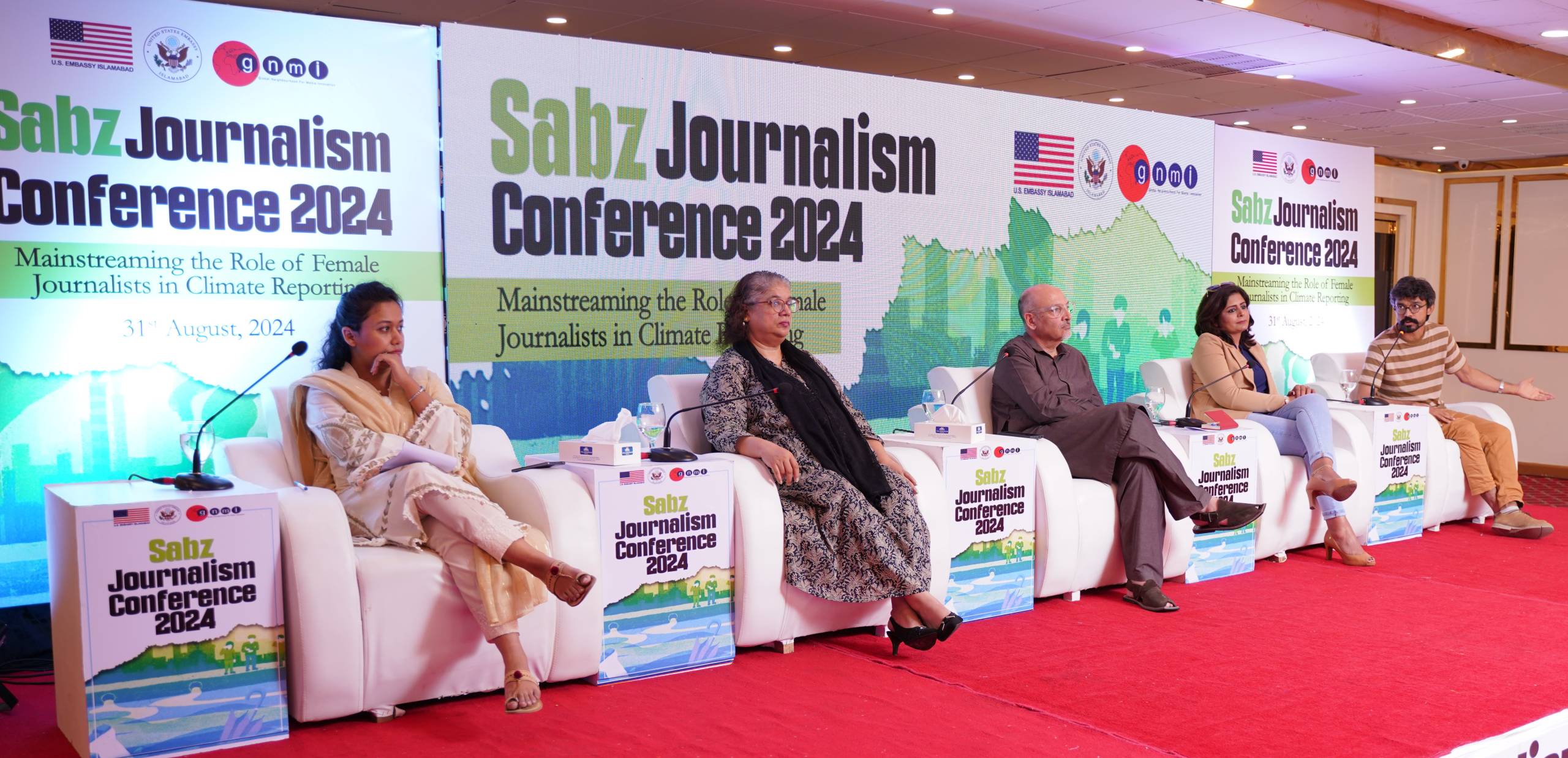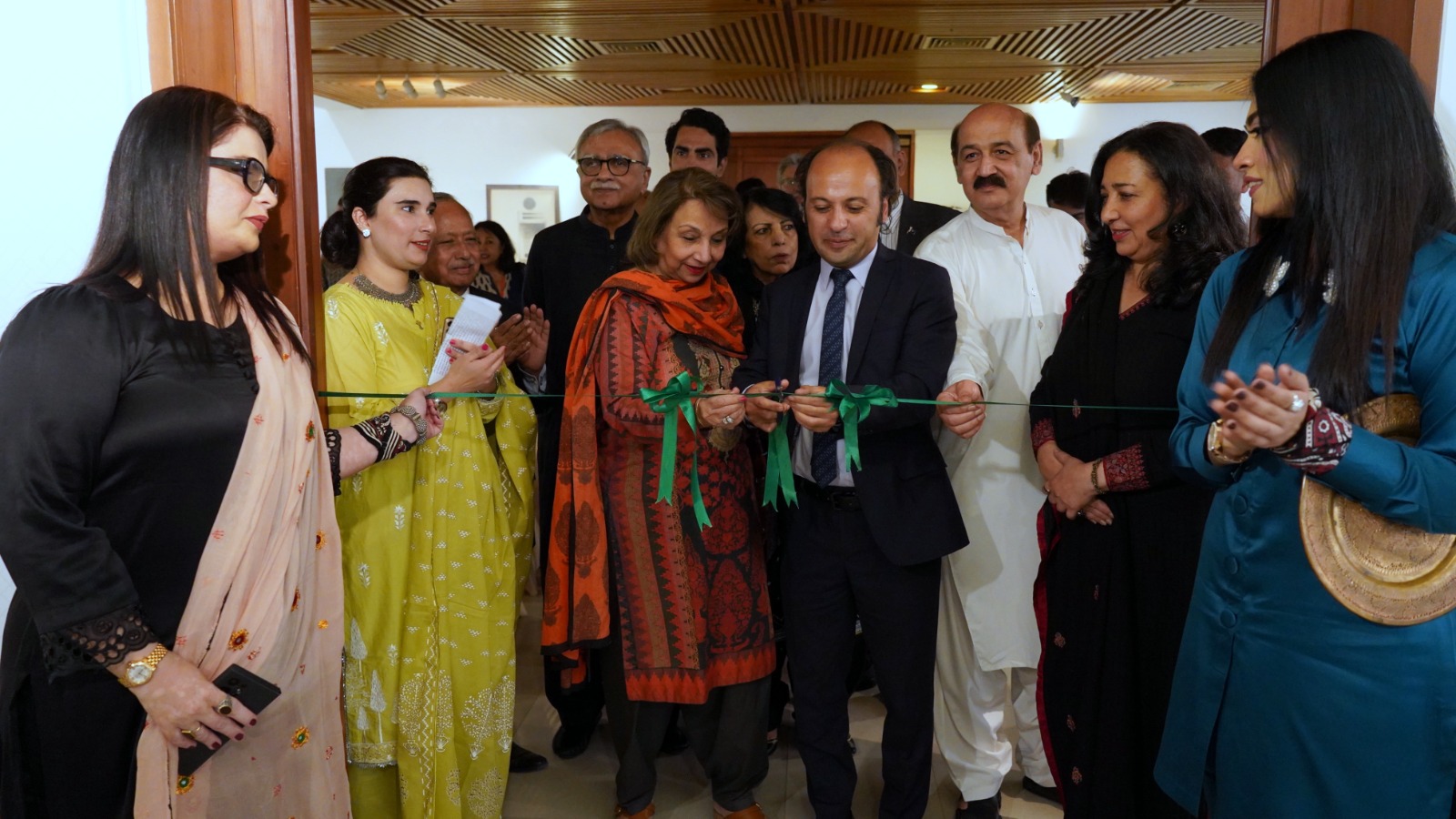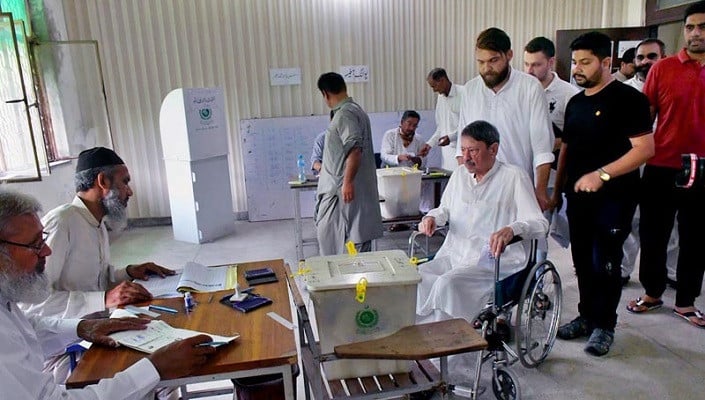Islamabad – As environmental crises escalate globally, female journalists in Pakistan are increasingly stepping into the forefront of climate reporting, yet they face formidable challenges. To address these issues and recognize their contributions, the Global Neighbourhood for Media Innovation, in collaboration with the United States Department of State hosted the Sabz Journalism Conference in Islamabad. The event, held at Islamabad Hotel, aimed to spotlight the critical work of women in environmental journalism while tackling the gender-specific barriers they encounter.
Husnain Raza, Director of Programs at GNMI, opened the conference by emphasizing its objectives and significance. He highlighted the event’s crucial role in addressing the challenges and opportunities confronting female journalists in Pakistan’s environmental journalism landscape. Raza also delivered a multimedia presentation showcasing the progress of Sabz journalism initiatives aimed at empowering women journalists to report on environmental issues with greater depth and impact. The session featured compelling narratives from women journalists at the forefront of climate change reporting, emphasizing their contributions and the urgent need for more inclusive and gender-sensitive environmental journalism in the country.
Ali Tauqeer Sheikh, Advisor for Climate Change at the Planning Commission of Pakistan, highlighted the pivotal role of women in environmental journalism, especially in the wake of the 2022 floods that caused losses estimated between $20-30 billion. “Women journalists are not only narrating the stories of climate change; they are shaping the very discourse that will define our future,” Sheikh remarked. He emphasized the necessity of fact-based reporting, highlighting how women journalists have historically brought untold stories to light, often in the face of systemic barriers. Sheikh called for amplifying the voices of women, particularly in areas where environmental degradation intersects with gender violence and urban population growth, issues that are frequently underreported but critical to understanding the full impact of climate change.
The panel discussion, titled “Nature Through the Lens of Gender: Challenges and Opportunities for Women Environmental Journalists,” brought together a distinguished group of experts to explore the intersection of gender and environmental journalism.
Moderated by Senior Broadcast Journalist Urooj Raza Sayyami, the session highlighted the critical underrepresentation of environmental journalism in Pakistan’s media landscape and the gender disparities within the field. Haroon Rashid, Managing Editor at The Independent Urdu, stressed the importance of prioritizing environmental issues, urging emerging journalists to focus on this area from the start of their careers. He emphasized that field reporting is crucial for accurate coverage, particularly for women journalists who often demonstrate greater commitment in this regard. Rashid called for mainstream media to give environmental issues the attention they deserve, aligning them with public discourse.
Samina Nazeer, Executive Director of PODA, and Nayyer Ali, Program Anchor at New One, both accentuated the systemic barriers faced by women journalists, especially in rural areas. Ms. Nazeer recounted her struggles to break into field reporting and criticized the media’s skewed priorities that often marginalize women’s voices in favor of religious figures. Ms. Nayyer highlighted the severe underpayment of female reporters and the lack of support they receive, particularly when covering harder beats like crime. She called for a stronger gender lens in environmental journalism and criticized the Ministry of Climate Change for its lack of visibility and action. Both panelists emphasized the urgent need for technical training and policy implementation to empower women in the field. Hunain Ameen, Managing Editor at Yeni Şafak Urdu, reinforced the necessity of integrating capitalism, gender, and environmental concerns into every story, urging journalists to dig deeper into these critical issues.
Participants belonging to the reputable media houses of Islamabad including, Associate Press Pakistan (APP), Pakistan Television (PTV), Dawn News, Samaa TV, Hum News, Independent Urdu, GNN, 92 News, AIK News, Public TV, Yeni Safak Urdu as well as various print and digital media outlets, participated in the event.
The conference concluded with a dynamic networking session, offering participants the opportunity to engage directly with the panelists and experts. This session facilitated in-depth conversations about the potential for collaborative efforts between media and civil society organizations, focusing on strategies to amplify awareness and advocacy for environmental issues.
Sabz Journalism Fellowship Program aims to empower journalists with the necessary skills and knowledge to report effectively on environmental issues, promoting awareness and understanding among the public. The program also seeks to promote data-driven and investigative reporting, achieve inclusive economic growth and sustainable development by producing and disseminating climate-focused content on digital media platforms.
GNMI is a registered non-profit media development organization that drives social impact through innovative use of media and technology. The organization employs state-of-the-art literacy programs and runs rights-based advocacy campaigns on media platforms for sustainable, innovative, and empowering solutions. With the support of United States Department of State, Sabz Journalism Fellowship Program is committed to improve the quality and volume of environmental reporting in Pakistan, ultimately contributing to increased public awareness and better-informed decision-making on environmental issues.
Also visit: Swat River and Right of Resistance








